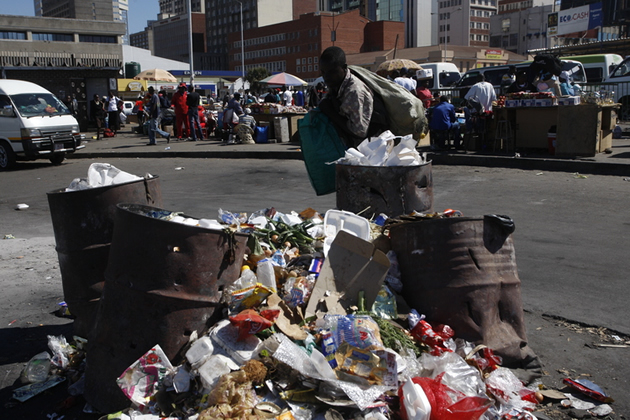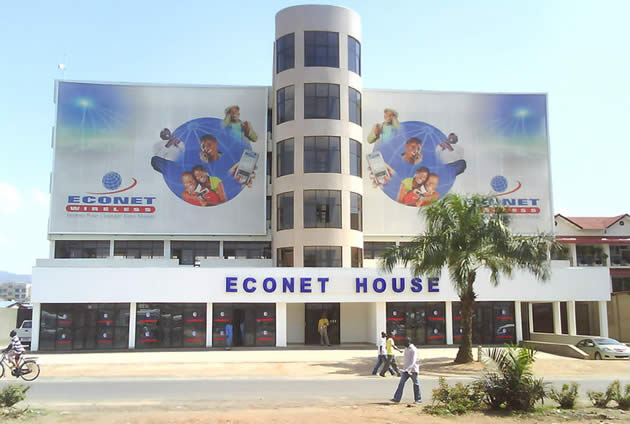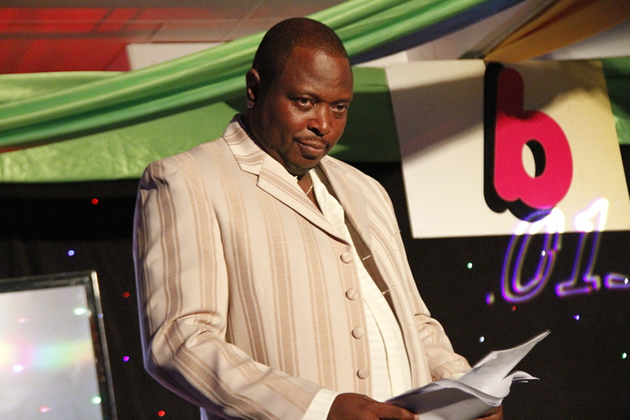When will we become ‘We the people’?


Children dice with death as they beg from motorists along busy streets and collecting leftover food from garbage bins
Hildegarde The Arena
WHEN Charles J. Sykes said “life is not fair, get used to it”, he was probably making one of the most hard-hitting and realistic statements.
It is devoid of human emotion, but it is the simple truth that we encounter on a daily basis.
For example, we have the haves and have-nots. The unevenness can be at individual, family, community, national and even continental levels.
Zimbabwe is currently basking in the glory of a peaceful environment, but the backdrop of that peace and tranquillity is a myriad of economic challenges.
Meanwhile, some countries on the continent that might look like they have it all are failing to enjoy what they have because of instability and war. They are justified to say that life is not fair!
Some people are buying the latest technological gadgets released on a daily basis because they have the means and wherewithal. They might also be going on holiday in different parts of the world, but in the midst of it is doom and gloom — abject poverty faced by a majority of the people.
Millions of people lack basics of life, which those that have take for granted, be it access to education, health care facilities, clean water and shelter.
The media has, on a number of occasions, reported on incidents that have ended tragically when people fought for five South African rand or US$1.
It sounds ridiculous when you have that amount or more, that people can fight over such a small amount, but this is the reality faced by a large number of people.
When fatalities like these happen once too often, it’s time to question the community and/or nation’s collective conscience: the perception on these social ills and how best they can be addressed.
It is also time to ask ourselves what happened to the fabric that held us together as a society when we were our brothers’ keepers and when we realised that it took a village to raise a child?
This sounds banal and trite, but the failure to re-examine the collective conscience means that the end product called Zimbabwe might not fare so well in the community of nations in years to come.
Now to specifics! The 2014 winter season has been one of the coldest despite the fact that temperatures have not fallen to single digits. Reports are that it is cold all over Zimbabwe.
In a number of cases, those who can afford warm clothing, have a place they call home where they can also have hot meals daily as they complain about the chilly weather.
If they can moan about the cold weather day-in and day-out, what should the increasing number of people living on the streets — men, women and children — and survive from begging be saying?
These people have become a common sight on most streets, and to most people they are also a nuisance.
This might be true since their numbers are growing and they are now found at most shopping centres in addition to the central business district.
However, if we feel the biting weather in those layers of clothing, what should they say since most of them live and sleep on cold pavements in their filthy summer clothing, without blankets too? If they take a bath (on rare occasions), they cannot afford the luxury of having warm bath.
As you walk around most parts of Harare’s CBD, you meet them: those with physical disabilities and the blind; mothers with children strapped on their backs; children of school going age all eking out a living by begging and scavenging for food from bins.
Some of the children dice with death as they beg from motorists along busy streets.
You look at the little boys and girls and apart from seeing faces of desperation and hopelessness, you also tell yourself that if millions of other children are in school getting an education, why have they become a lost generation? Why can’t they also realise their dream?
Apart from these challenges, you also wonder how many of them are physically and sexually molested on a daily basis. If child sexual abuse is rife in homes and secure institutions, who protects these street children?
Some of them have turned to drugs, alcohol and child prostitution. A fortnight ago this writer was in the eastern part of Harare’s avenues area.
In one street corner, there were many 15 to 18-year old girls — all commercial sexual workers looking for clients.
It was cold, but more than half of them were skimpily dressed. Worse things are happening in a lot of places, and it seems as though in order to pacify ourselves as we all search for the elusive dollar, the best we can do is to look the other way.
But to what end?
But, maybe it is also good that life is not fair. This writer took this scenario to another world, a world where some people; especially youths, spend their lives, with the exception of these less fortunate people.
That’s cyberspace! Most people are on social media — Twitter, Facebook, WhatsApp and others — hours on end.
We have accepted hook, line and sinker that this is where the world is going, but we have never interrogated why only a small fraction should move into that world, when the majority cannot afford life’s basics.
In cyberspace, some might dabble into pornography, but their continual stay in the virtual world takes them away from reality on the ground.
It gives a numbing effect because when on social media, the beggars and destitute they see the moment they put away their smart phones, can’t bother them.
It is easy to play the blame game regarding the causes of these problems and solutions to the challenges, with Government being the easiest target.
But as individuals who might have food, clothing and even excess cash, when are we going to take that step of faith and be philanthropists at a small or larger scale? During the Constitution-making process we claimed, “tisu ‘anhu ‘acho”(we the people). When will we become “We the people”?









Comments